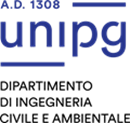Prof. Dr. Federico Cluni
Course description
The course aims to provide skills for the use of the Python programming language in the scientific field. The students will learn how to use tools dedicated to the management and processing of scientific data. Particular attention will be paid to the acquisition of the skills necessary to share the results of research by means of stand-alone applications or web apps.
5 CFU (30 ore)
Lesson plan
Module 1 – Tuesday June, 16th 2020 9:30-12:30
Introduction and base functionality: interaction, data types, syntax, exceptions, functions.
Module 2– Thursday June, 18th 2020 9:00-13:30
Advanced functionality: class and object programming, data management, base packages.
Module 3 – Tuesday June, 23th 9:00-13:30
Python for numerical computing: numerical array, linear algebra, MATLAB-like operativity with Numpy/Sympy, time series management with Pandas, plot and visualization with Matplotlib, performance enhancement with Numba.
Module 4 – Friday June, 26th 2020 9:00-13:30
Notebooks for research sharing: creation, interactivity, sharing.
Module 5 – Friday July, 3rd 2020 9:00-13:30
Extendibility and interoperability: Fortran, C++, Excel.
Module 6 – Tuesday July, 10th 2020 9:00-13:30
GUI creation: base concept for creation of graphic user interface with Tkinter.
Module 7 – Thursday July, 17th 2020 9:00-13:30
Web App Development: base concepts for creation of web app with Flask.
Applications developed during the course: ODE solver, FEM code.
(brochure)
(Materiale didattico: Lecture 1, 2, 3, Test Punto Python, 4, 5, file lecture 5, file lecture 6, 7, webapp, base_form)


